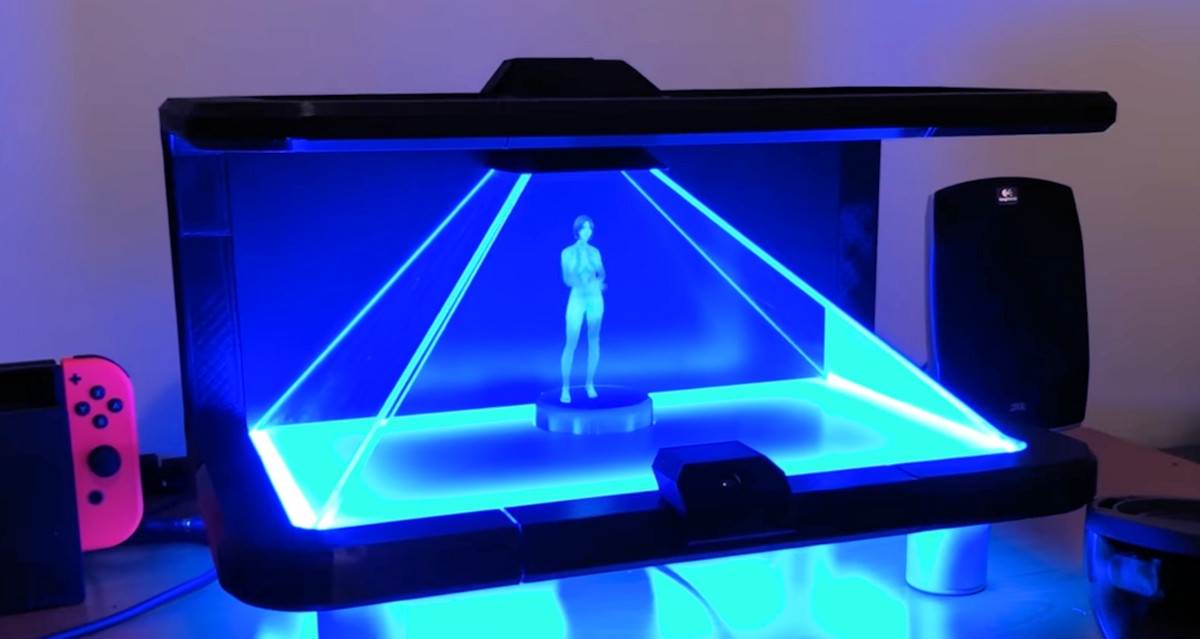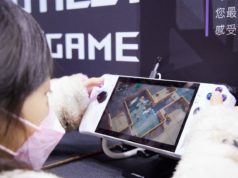
One day Microsoft will release an own-branded Cortana speaker, and it will probably have a screen and look a lot like the Echo Show.
If hardware hacker Jarem Archer had his way, however, it would be a lot more impressive.
He created his own Cortana appliance, which he says was “basically what imagined Microsoft’s version of Alexa or Google Home would be like if they were to use the holographic AI sidekick from the Halo franchise.”
Meticulously crafted with a 3D printer and using a variety of off the shelf electronic parts, the work is a tour de force in what is possible at home with today’s technology.
“It’s all powered by a Windows 10 device with 4GB of RAM and a built-in Arduino used for controlling the platform lights, Archer explains. “There’s a portable USB monitor on the top that reflects on 3 panes of mirror glass. The enclosure itself is a custom design I modelled. I then 3D printed each part of the assembly in PLA. There’s also an omnidirectional microphone that sits on top of the unit, and a decent mini speaker built into Cortana’s pedestal on the base.”
A Unity3D module powers the animation, projecting a model on 3 surfaces of the cube using a USB screen and a second module parses the user data send sends it to Cortana’s web service.
“The proxy app renders the HTML from Cortana result queries which is then presented in the Unity app,” Archer says.
A camera tracks the user’s head and adjusts the image to enhance the 3D effect.
“This makes it look a bit more 3 dimensional when facing it,” says Archer.
See the device in action below:
[embedded content]
To build your own, see step by step instructions at Jarem’s blog -.






